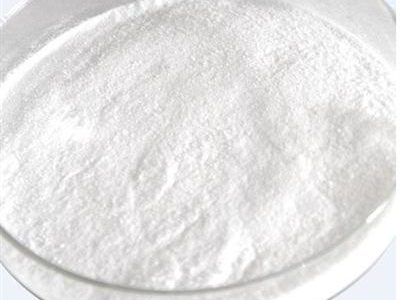Eprinomectin USP
Apr 26, 2019

Eprinomectin is a mixture of eprinomectins B1a and B1b in a 9:1 ratio, produced from a mixture of avermectin B1a and B1b. Eprinomectin is used commercially as a topical endectocide (insecticide, miticide and nematocide) for cattle, including lactating dairy cows. Like all avermectins and milbemycins, eprinomectin acts by binding to parasite glutamate-gated chloride ion channels and disrupts neurotransmission leading to paralysis and death of the parasite, mite or insect.
Items
Specifications
Results
Appearance
White to yellowish crystalline powder
Qualified
Identification
Infrared Absorption
Qualified
The retention times of the Component B1a peak and
the Component B1b peak in the chromatogram of
the Assay preparation correspond to those in the
chromatogram of the standard preparation
Qualified
Specific rotation
+132 °~ +140 °
+137 °
Water
≤2.0%
0.3%
Residue on ignition
≤0.1%
0.1%
Heavy metals
≤10ppm
10ppm
Residual
solvents
Acetonitrile ≤0.005%
0.003%
Sum of all solvent ≤0.5%
0.2%
8a-oxo-B1a
≤0.5%
0.1%
Related
compounds
Related compounds with relative retentions of
0.23,0.93, and 1.16 correspond to B1a peak≤ 1.0%
0.5%
Related
compounds
Impurity A ≤1.0%
0.2%
Impurity E ≤ 1.0%
0.1%
All other known impurities ≤0.5%
0.2%
Total unknown impurities≤ 1.0%
0.3%
Total impurities ≤5.0%
1.3%
Assay
Component B1a ≥90.0%
93.1%
Component B1a and Component B1b≥ 95.0%
98.7%
Conclusion
The results conform with USP35
Function:
Eprinomectin is not only a broad spectrum and the most efficacious pesticide of Avermectin kind, but also one of the lowest distribution coefficient of this kind in milk. Trials show that the product with the concentration of 0.1mg/kg or 0.05mg/kg can efficaciously prevent seven kinds of nematodes parasitic on large intestine, small intestine and stomach of cattle and sheep, the efficacy is shown as at least 97%. When it is used to cow in milk, concentration ratio in milk to in plasma is not more than 0.2. It has the advantage over other drugs against nematodes parasitic on cow during milking.
Application:
Eprinomectin is moderately used in ruminants, mainly in pour-ons and injectables. So far it is not used in swine, poultry or horses. Use in cats as a spot-on (in combination with other actives) is still rather scarce. So far it is not used in dogs.
In most finished products, efficacy and safety depend not only on the amount of active ingredient(s) but also on their formulations (i.e. the type and amount of so-called inert ingredients), particularly in injectables and in topical pour-ons and spot-ons. These inert ingredients can significantly affect the pharmacokinetic behavior (e.g. absorption through the skin or from the injection site, distribution within the body, spreading throughout the body surface, etc.). Generic products usually contain the same amount of active ingredient(s) as the original product, but often in quite different formulations. In many cases, the curative (therapeutic) efficacy of the different formulations is quite comparable, but the protective (prophylactic) efficacy that determines the length of protection against re-infestations may be rather different.
